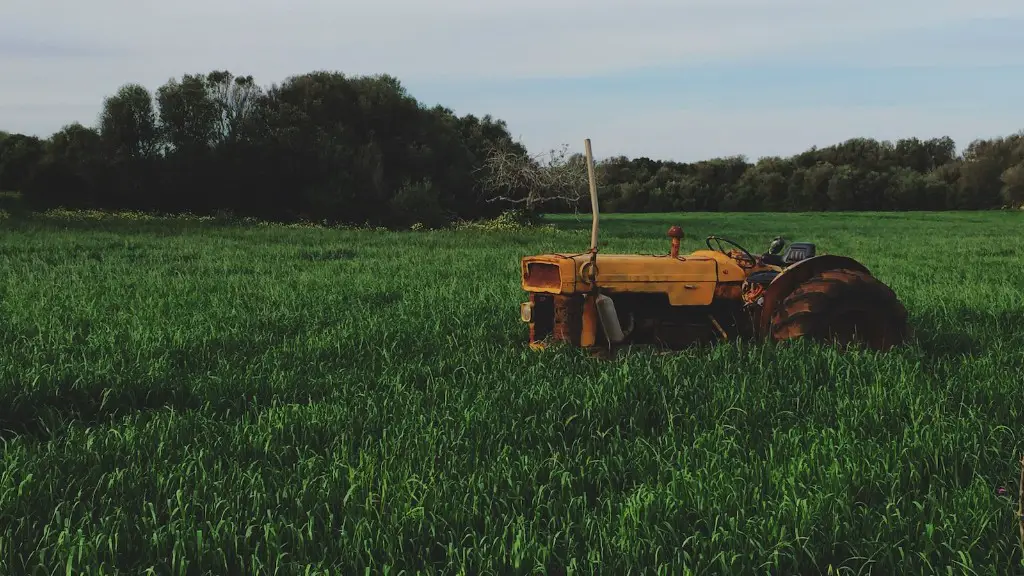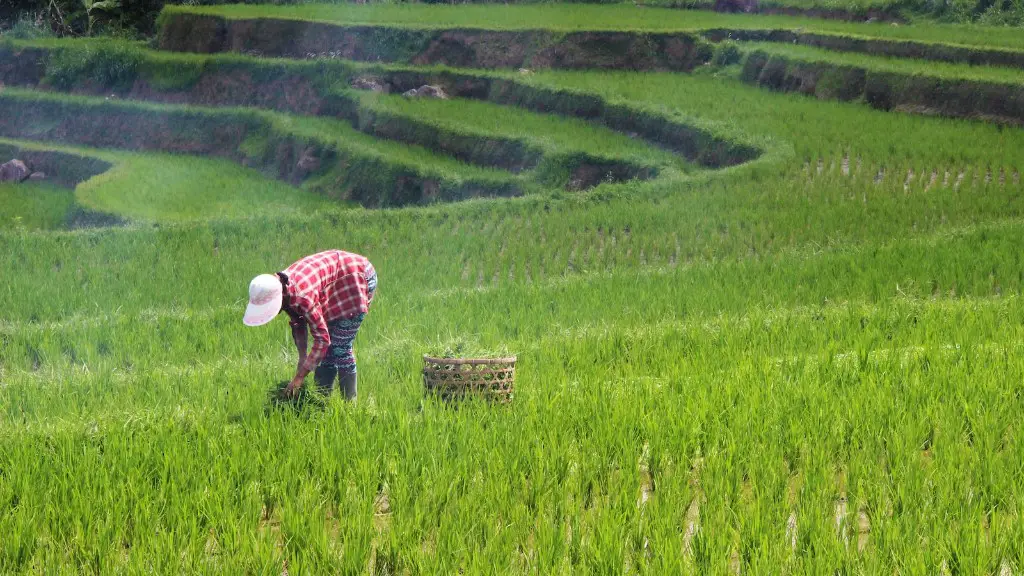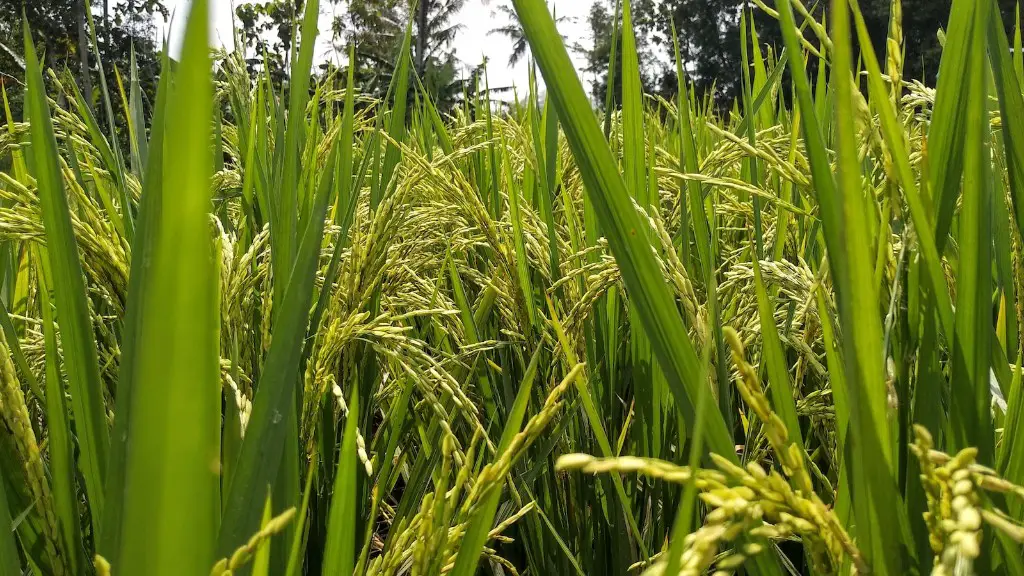The domestication of plants and animals allowed for the permanent settlement of humans which led to the development of civilizations. Agriculture allowed for the domestication of plants and animals which led to the permanent settlement of humans and the development of civilizations. Agriculture allowed for the growth of food surpluses, which in turn allowed for the development of cities and trade. The development of cities and trade led to the growth of civilizations.
Prior to the development of agriculture, humans lived as nomadic hunter-gatherers. This meant that they moved from place to place in search of food anddid not have any permanent settlements. Once agriculture was developed, humans began to settle in one place and grow their own food. This led to the development of civilizations and allowed for a more complex social structure. Agriculture also allowed for the domestication of animals, which led to the development of new technologies and improved transportation.
How did agriculture change the way that humans lived in the Neolithic era?
As early farmers became better at cultivating food, they may have produced surplus seeds and crops that required storage. This would have both spurred population growth because of more consistent food availability and required a more settled way of life with the need to store seeds and tend crops.
An agrarian society is a community that is based on agriculture as its main source of income. This type of society is typically found in rural areas and is heavily dependent on farming and other agricultural activities. Agrarian societies are often traditional and have a strong sense of community.
How did the agricultural revolution impact human health
The transition to agriculture had a negative impact on human oral health. This is because agriculture led to a diet that was heavy in carbohydrates and lacked the nutrients that are necessary for good oral health. Additionally, agriculture led to an increased incidence of infectious disease, as well as nutritional deficiencies. These factors all contributed to an overall reduction in human stature.
The ability to grow crops and tame animals changed the way humans lived. They were now able to produce a constant food supply which allowed the population to grow at a faster rate. Nomads gave up their way of life and began living in settled communities.
Why did agriculture change the life of early humans?
When early humans began farming, they were able to produce enough food that they no longer had to migrate to their food source. This meant they could build permanent structures, and develop villages, towns, and eventually even cities. Closely connected to the rise of settled societies was an increase in population.
This period was a time of great change for humans as they were transitioning from hunters and gatherers to farmers. Farming allowed for people to produce more food than they could actually eat and the extra food provided by agriculture meant that some people did not have to spend their time gathering food. This shift was a major turning point in human history as it allowed for the development of civilizations and the growth of populations.
Why is agriculture important to humans?
Agriculture is the backbone of the world economy, providing most of the food and fabrics that we consume on a daily basis. Cotton, wool, and leather are all agricultural products that are used to create a variety of consumer goods. Agriculture also provides wood for construction and paper products. These products, as well as the agricultural methods used, may vary from one part of the world to another.
The Agricultural Revolution was a pivotal moment in human history, ushering in an era of widespread and sustainable food production that allowed for the development of cities and civilizations. Unfortunately, this newfound productivity came at a cost to the environment, as large swaths of forest were cleared to make way for farmland, destroying habitats and decreasing biodiversity. Additionally, the increased use of fossil fuels associated with agriculture release harmful carbon dioxide into the atmosphere, contributing to climate change. While the Agricultural Revolution was an important step in human history, we must be mindful of its environmental consequences and work to mitigate them.
What is the importance of agriculture to the society
Agriculture is one of the most important aspects of a country’s economy. It provides food and raw materials, and employs a large section of the population. Agriculture is vital to the overall health of a country’s economy and should be given the importance it deserves.
The Agricultural Revolution was a time of great change for humanity. For the first time, we began to settle down in one place and farm the land. This shift away from hunting and gathering had a dramatic impact on our way of life. we were able to form permanent settlements and develop new technologies. This period of time was also coincidental with a major climate change, as the last ice age came to an end. This change in the weather patterns had a profound effect on agriculture, and allowed humans to thrive in many new areas of the world.
How did agriculture impact us?
Agriculture plays a vital role in the US economy, contributing over $1264 trillion in 2021. This sector accounts for 54% of the country’s gross domestic product (GDP), with the output of farms alone contributing $1647 billion. Agriculture provides employment for millions of Americans and is a key driver of rural economic growth. The sector also plays a significant role in international trade, with the US exporting billions of dollars’ worth of agricultural products each year.
The Agricultural Revolution of the 18th century played a significant role in paving the way for the Industrial Revolution in Britain. New farming techniques and improved livestock breeding led to amplified food production, which in turn allowed for a spike in population and increased health. The increased efficiency of agriculture allowed for a better distribution of resources, which helped to fuel the industrialization of Britain.
What are 3 benefits of the Agricultural Revolution
The term “agricultural revolution” typically refers to the unprecedented increase in agricultural productivity and output that occurred as a result of the introduction of new technologies, crop rotation, and improved husbandry techniques during the 18th and 19th centuries. This increase in agricultural productivity allowed for the growth of urban populations and the rise of industrialization. The agricultural revolution was a pivotal moment in human history and had a profound impact on the development of modern society.
Agriculture is one of the most important industries in the world because it provides the food we need to survive. In the United States, agriculture accounts for $7 trillion of the economy. despite its importance, the Economic Policy Institute reports that farmworkers are among the lowest-paid workers in the US. This is due to a variety of factors, including the high cost of living and the lack of benefits and protections for workers.
Why was the Agricultural Revolution important to humans?
The Agricultural Revolution was a significant turning point in human history and set the foundation for modern human life as we know it. The ability to stay in one general area and cultivate our own food made life much more manageable, and contributed to the growth of human society in terms of culture, technology, and more. This time period marked a major change in the way humans lived and interacted with their environment, and set the stage for the development of civilizations.
In Colonial America, agriculture was the primary livelihood for 90% of the population, and most towns were shipping points for the export of agricultural products. Most farms were geared toward subsistence production for family use. This meant that families would produce enough food to feed themselves and then sell any excess produce in order to make a profit. This system allowed for a certain amount of self-sufficiency, but it also meant that families were always at risk of being unable to sell their crops and make enough money to support themselves.
Final Words
Agriculture allowed humans to settle in one place and build civilizations. Before agriculture, humans were hunter-gatherers and constantly moved around to find food. Agriculture allowed humans to domesticated plants and animals, which led to the development of cities and complex societies. Agriculture has had a profound impact on human history and has shaped the way we live today.
Agriculture allowed humans to domesticated plants and animals, which led to the formation of permanent settlements and the development of civilizations. Agriculture also allowed for the growth of cities and the rise of complex social structures.





